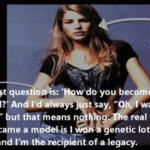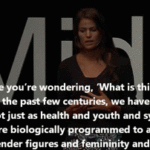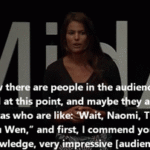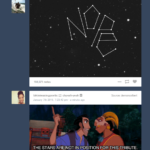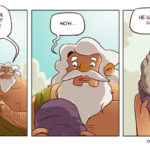No matter how lonely and isolated and starved for connection you are, there’s always the possibility in the online world that you can find a place to be accepted, or discover a friendship that’s started with the smallest of interests but could last a lifetime.
My favorite part of Mad Max: Fury Road is where Max turns into angry murder santa and presents Nux with a wheel of his very own and a boot.
#and on the third day of christmas my new dubiously lucid father figure gave to me #a sack full of ammo a boot a steering wheel and a partridge in that tree thing (via softbuckybarnes)
Who Won Science Fiction’s Hugo Awards, and Why It Matters
Who Won Science Fiction’s Hugo Awards, and Why It Matters
At the presentation each August, the Gods with the rockets in their hands have been joined by Goddesses and those of other ethnicities and genders and sexual orientations, many of whom want to tell stories about more than just spaceships.
Early this year, that shift sparked a backlash: a campaign, organized by three white, male authors, that resulted in a final Hugo ballot dominated by mostly white, mostly male nominees. While the leaders of this two-pronged movement—one faction calls itself the Sad Puppies and the other the Rabid Puppies—broke no rules, many sci-fi writers and fans felt they had played dirty, taking advantage of a loophole in an arcane voting process that enables a relatively few number of voters to dominate. Motivated by Puppygate, meanwhile, a record 11,300-plus people bought memberships to the 73rd World Science Fiction Convention in Spokane, Washington, where the Hugo winners were announced Saturday night.
With so much at stake, more people than ever forked over membership dues (at least $40) in time to be allowed to vote for the 2015 Hugos. Before voting closed on June 31, 5,950 people cast ballots (a whopping 65 percent more than had ever voted before).
Not a single Puppy-endorsed candidate took home a rocket. In the five categories that had only Puppy-provided nominees on the ballot—Best Novella, Best Short Story, Best Related Work, and Best Editor for Short and for Long Form—voters instead preferred “No Award.”
holy shit
vindicated chortling
Wes Craven, Horror Maestro, Dies at 76
About Executive Dysfunction; for neurotypical people
Friends, family members and loved ones of learning disabled and mentally ill people need to have a working knowledge of what Executive Dysfunction is, and respect the fact that it is a prominent feature of that person’s psychology and life.
Executive Dysfunction is best known as a symptom of autism and ADHD, but it also features in depression, anxiety disorders schizophrenia, OCD (which by the way is also an anxiety disorder), personality disorders; etc, a whole myriad of mental illnesses and disabilities can result in executive dysfunction.
Years ago when I was like 14 and had recently learned of my autism diagnosis, I watched a youtube interview between autistic people, and an autistic woman said something along these lines:
- “Sometimes, a lightbulb will burn out, but I cannot change it. I have the physical capability to change the lightbulb, and I want to change the lightbulb, and I know I need to do it, but because of my autism I just don’t do it. So the lightbulb remains unchanged for weeks. Sometimes people have to change the lightbulb for me.”
When she said that I related so much, because constantly throughout my whole life I have wanted and needed to do things with my wanting and needing being akin to my spurring an extremely stubborn horse who refuses to move. For the first time I learned that I wasn’t just “lazy”, I had a condition that prevented me from doing things as easily as other people can, but unfortunately it took me years since then to understand that.
Imagine that you are a horserider, but your horse is entirely unwilling to move even if you want to move. You dig in your heels, you raise the reins, but the horse refuses to respond. Your wants and needs are the rider, and your executive functions (the parts of your mind responsible for getting things done) are the horse.
I think it’s incredibly dangerous for neurotypical loved ones to not understand, or be aware of, or respect executive dysfunction. Neurotypical can assume that we are just being lazy, careless, selfish or difficult, when in reality we want to do the thing but our brains prevent us from consistently and reliably doing the thing.
That misinterpretation can lead to toxic behavior and resentment on the part of the loved one, which will harm us emotionally and do us a lot of damage gradually over time.
That damage can take the form of internal self-criticism, complicating executive dysfunction even further and making it worse.
edited for easier reading!
THISS
YOOOOOOOOOO MORE POSTS ABOUT MY LEARNING DISABILITIES YO DAWG NICE



